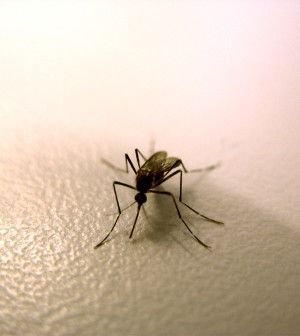- 8 Ways to Increase Dopamine Naturally
- 7 Best Breads for Maintaining Stable Blood Sugar
- Gelatin vs. Collagen: Which is Best for Skin, Nails, and Joints?
- The Long-Term Effects of Daily Turmeric Supplements on Liver Health
- Could Your Grocery Store Meat Be Causing Recurring UTIs?
- Are You Making This Expensive Thermostat Error This Winter?
- Recognizing the Signs of Hypothyroidism
- 10 Strategies to Overcome Insomnia
- Could Artificial Sweeteners Be Aging the Brain Faster?
- Techniques for Soothing Your Nervous System
Scientists Seek to Take Bite Out of Mosquito Problem


Researchers have learned more about how mosquitoes detect skin odor, and they say their findings could lead to better repellants and traps.
Mosquitoes are attracted to our skin odor and to the carbon dioxide we exhale. Previous research found that mosquitoes have special neurons that enable them to detect carbon dioxide. Until now, however, scientists had not pinpointed the neurons that mosquitoes use to detect skin odor.
The new study found that the neurons used to detect carbon dioxide are also used to identify skin odor. This means it should be easier to find ways to block mosquitoes’ ability to zero in on people, according to the study’s authors. The findings appeared in the Dec. 5 issue of the journal Cell.
“These findings open up very realistic possibilities of developing ways to use simple, natural, affordable and pleasant odors to prevent mosquitoes from finding humans,” senior author Anandasankar Ray, of the University of California, Riverside, said in a journal news release.
Mosquitoes can carry dangerous diseases such as malaria, dengue fever and West Nile virus.
“The powerful experimental approaches we have developed will help us find potential solutions that we could use not only here in the United States but also in Africa, Asia and South America, where affordability is key in the war against these diseases,” Ray said.
“The insect olfactory system is an excellent target to manipulate their attraction to humans and other prey,” Ray said. “We believe that this study will be the foundation for the discovery of a new generation of mosquito-behavior-modifying approaches.”
More information
The U.S. Centers for Disease Control and Prevention has more about mosquito-borne diseases.
Source: HealthDay
Copyright © 2026 HealthDay. All rights reserved.










